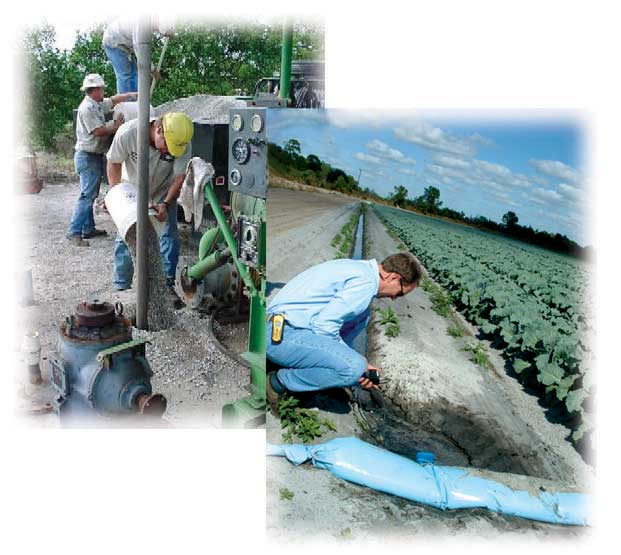Working Together

The District is among a diverse group of stakeholders that recently joined forces to improve water quality in the Shell Creek and Prairie Creek watersheds, Punta Gorda’s primary water supply source.
The stakeholders, including several government agencies, the City of Punta Gorda, citrus growers and agricultural organizations, took part in signing the Shell, Prairie and Joshua Creeks Watershed Management Plan Stakeholders Agreement. By signing the agreement, stakeholders agree to work together in a mutually collaborative, supportive community-oriented manner.
“This project is a unique example of how the public and private sectors can work together to solve a common problem,” said Steve Minnis, District senior community affairs coordinator. “It is unique because there is such a diverse group that has come together.”
“We’re looking forward to this agreement as being a model for the state,” said David Moore, District executive director.
In recent years the two creeks, which sustain Punta Gorda’s reservoir, have seen a decline in water quality because of an influx of highly mineralized ground water from agricultural operations within the watershed. The decline became much more pronounced during the prolonged drought of 1999–2001 as rainfall decreased and agricultural irrigation increased.
Some of the instrumental stakeholders addressing the group during the signing ceremony included Barbara Carlton, executive director of the Peace River Valley Citrus Growers Association; Lindsay Harrington, former speaker pro-tem; and Stephen Fabian, Punta Gorda mayor.
The plan identifies projects and management practices to improve poor water quality due to elevated concentrations of chloride, total dissolved solids and specific conductance. Some of the specific management actions in the plan include:
•The District’s Shell, Prairie and Joshua creeks well back-plugging program, which identifies poor water quality wells and plugs them, leaving the good water quality wells open.
•The District and Department of Agriculture and Consumer Services (FDACS) Facilitating Agricultural Resource Management Systems (FARMS) program, a public/private partnership program designed to assist the agricultural community with implementing water-conserving irrigation systems and other best management practices (BMPs) to reduce water usage and improve water quality.
•The federal Natural Resources Conservation Service — Environmental Quality Improvement Program, which works with growers to develop and implement BMPs.
•The FDACS Peace River Valley/Manasota Area Citrus Best Management Practices Manual, emphasizing BMPs.
•The District’s Quality of Water Improvement Program, which properly closes abandoned wells.
